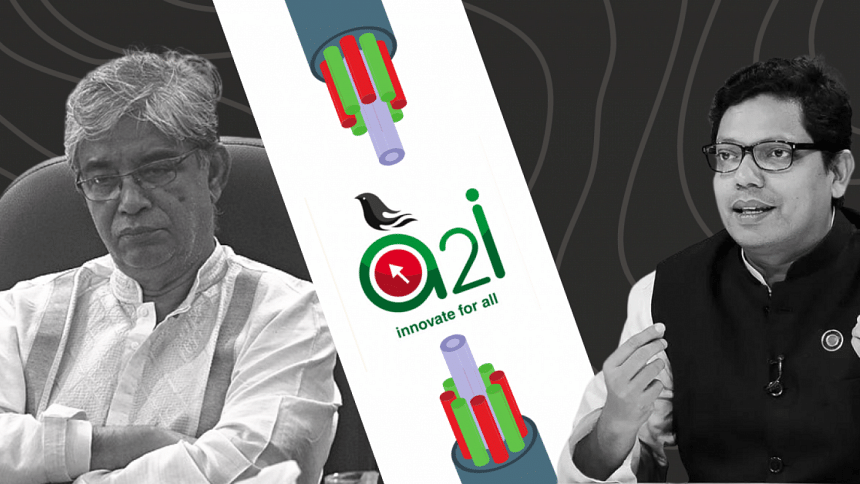a2i Act: Gateway to kleptocracy and highway to oligarchy

The Agency to Innovate (a2i) bill was hurriedly passed on July 5; the government fast-tracked presidential consent to make it a law within four days. Before the bill was placed, however, it was immediately detected that Section 21 of the law, which allows a2i to form a company, is a tumour that will metastasise.
During this time, something bizarre happened in our parliamentary affairs' history. Mustafa Jabbar, the telecommunication minister, publicly accused his junior colleague Zunaid Ahmed Palak, the state minister for ICT, of staging a legislative coup.
On July 7, Jabbar told The Daily Star, "It was unanimously decided that a2i would not be allowed to form a company." At a parliamentary standing committee meeting to scrutinise the bill on June 18, trade bodies thanked the ICT state minister for listening to their demands, Jabbar added. But those demands were not kept.
In fact, Jabbar has accused Palak of doctoring the draft a2i bill prior to placing it before the house for legislative approval.
In the same interview with The Daily Star, the software trade body's president, Russell T Ahmed, was infuriated and demanded a cyber-forensic probe.
The standing committee meeting was filmed, he said. "So, if the video or the meeting minutes are made public, one will see that the decision of the meeting has not been reflected in the law. We all came out of the meeting that day (June 18) with happy faces as all of our demands were met," he added.
Russell further said the bill goes against the interests of the country and the industry. In fact, the remaining ICT trade bodies, which have been historically subservient to the government, have collectively unleashed their anger at the "fabricated version" of the a2i law, suspected to be a commercial trojan horse.
They fear that all the government's ICT projects, which are lucrative sources of revenue, would bypass law to directly engage the preferred suppliers. The industry cannot be blamed for such an apprehension, because a2i functions under the ICT Division, which has earned infamy for brazenly violating the law only to promote the oligarchs in the name of digitising Bangladesh.
For example, the legal framework forbids the deployment of optical fibre without a nationwide telecommunication transmission network (NTTN) licence. But Bangladesh Computer Council (BCC), which functions under the ICT Division, has illegally deployed hundreds of thousands of kilometres of optical fibre cable (OFC) nationwide under a project—without the licence.
Everybody knows about this multi-billion dollar project, which is accused of scandal, but nobody dares to question it. BCC's proximity to the country's political power has bolstered it to not even make payments to the exchequer for deploying OFC by the roads and highways.
The ICT Division, being a part of the telecommunication ministry, now overtly sabotages the OFC business of state-owned Bangladesh Railway (BR) and Power Grid Company of Bangladesh (PGCB).
The Bangladesh Telecommunication Regulatory Commission (BTRC) has been forced to prohibit BR and PGCB from expanding OFC coverage beyond the train track or power transmission grid route. Such informal embargo is unheard of anywhere in the world, especially in a rapidly rising economy like Bangladesh.
As a result, today a large majority of the OFC network that hangs overhead across the vast plainland of Bangladesh is BCC's. This is the most humiliating and self-defeating form of engineering by any standard anywhere in the world.
Since both the BR and PGCB are publicly owned entities, they cannot sue the BTRC for sabotaging their commercial interest, which only safeguards the oligarchs being fostered by the ICT Division.
After successfully implementing a destructive policy at the infrastructure front, the ICT Division is now bulldozing the slightest chance of innovation and competition in the technology front of Bangladesh through the a2i law. That is why the entire private sector publicly abhors the act so much!
Abu Saeed Khan is a senior policy fellow at LIRNEasia.

 For all latest news, follow The Daily Star's Google News channel.
For all latest news, follow The Daily Star's Google News channel. 








Comments